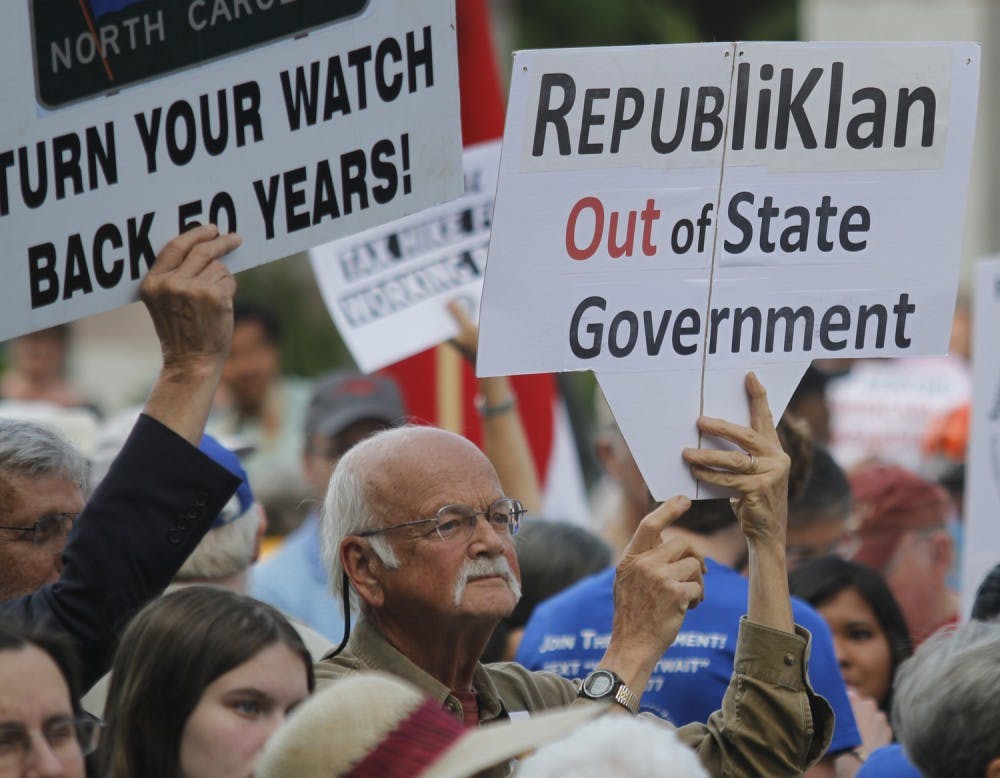“This represents the first time that district court judges have looked at and evaluated the constitutional claims we have made,” said Irv Joyner, legal advisor for the N.C. chapter of the NAACP, which sponsored the Moral Monday events.
In their decisions, North Carolina District Judges Joyce Hamilton and Anne Salisbury cited a U.S. Supreme Court ruling in June that concerned anti-abortion advocates at Massachusetts abortion clinics. The Court struck down a state law that had created a wide buffer zone around the clinics where demonstrations could not occur.
Both North Carolina judges wrote that individuals can only be restricted in their free speech if they are “actually disrupting or obstructing legitimate governmental interests.”
Hamilton heard and dismissed five of the Moral Monday protesters’ cases on July 30, and Salisbury dismissed eight more cases in mid-August.
Nearly 1,000 people were arrested at the state legislature during the demonstrations in 2013.
“We had been making constitutional arguments to get these cases dismissed all along,” said Scott Holmes, director of the Civil Litigation Clinic at N.C. Central. He has represented many of the Moral Monday protesters in court.
Holmes said Jeff Weaver, police chief at the N.C. General Assembly, argued the noise and large mass of protesters at the demonstrations interfered with the lawmakers’ ability to conduct government business.
But in fact, Holmes said the protesters’ speech was being restricted.



